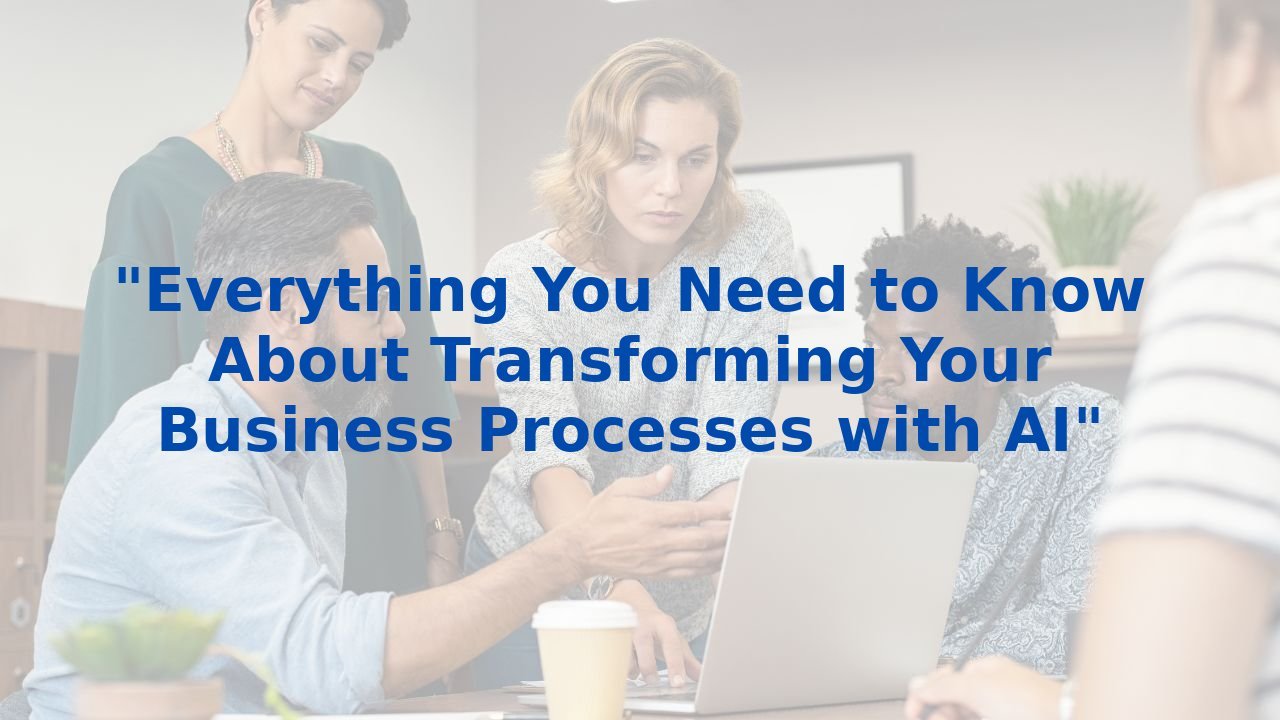"Everything You Need to Know About AI in Project Management: Revolutionizing Efficiency and Predicting Risks"
The Revolution of AI in Project Management: Enhancing Efficiency and Predicting Risks
Introduction
Artificial intelligence (AI) is not just a buzzword; it is fast becoming a cornerstone of modern project management practices. The traditional methods we’ve relied upon are evolving, as AI introduces groundbreaking efficiencies and insights. This blog post explores how AI enhances core business processes within project management and highlights the profound impact it has on organizational efficiency.
Enhancing Project Management Processes with AI
1. Predictive Analytics
Imagine having the capability to foresee challenges before they arise. AI tools equipped with predictive analytics analyze massive datasets to identify potential risks that can derail a project. They provide early warnings that empower project managers to act proactively, making adjustments that keep projects on a steady path toward success.
2. Resource Optimization
Effective resource allocation is imperative for achieving project goals. With the power of AI, project managers can assess historical data and current project demands to ensure that the right individuals are assigned to the right tasks. This not only maximizes productivity but also ensures that schedules are optimized based on available resources. It shifts the paradigm from reactive resource management to a proactive and intelligent allocation strategy.
3. Cost Estimation and Planning
Cost overruns are a persistent headache in project management. AI mitigates this risk by analyzing data from past projects and current market conditions to offer precise cost estimates. This efficiency allows project managers to create more realistic budgets and minimize the chances of financial mishaps, ultimately leading to projects that are delivered within budget.
4. Automated Reporting and Task Management
Time is perhaps the most valuable resource in project management. AI can automate mundane tasks such as generating status reports, scheduling meetings, and data entry. By offloading these routine tasks to intelligent systems, project managers are liberated to engage in higher-level strategic work and stakeholder engagement. Furthermore, AI-driven analytics can automatically assign tasks to team members based on their expertise, streamlining workflow and enhancing productivity.
5. Risk Management
Identifying threats to project success is a critical role for project managers. AI excels in this area by parsing through extensive datasets to pinpoint vulnerabilities. Not only does it identify risks, but it also provides actionable strategies for risk mitigation, empowering project managers to adopt a proactive stance that significantly reduces the likelihood of delays and cost overruns.
Benefits of AI in Project Management
The integration of AI in project management is not just a technical upgrade; it brings an array of transformative benefits:
- Improved Efficiency: By automating repetitive tasks, AI allows project managers to dedicate their time to strategic initiatives that propel project success.
- Enhanced Accuracy: AI inputs and analytics minimize errors in both cost estimation and resource allocation, which are critical for project integrity.
- Predictive Capabilities: The foresight offered by AI tools allows managers to identify potential risks early, making proactive strategies possible.
- Optimized Resource Utilization: AI ensures that resources are not just allocated but optimized for maximum productivity.
The Importance of Employee Training for AI
While adopting AI tools is a significant step forward, the human element remains crucial. Training employees on AI utilization can unlock the full potential of these technologies. Here’s why:
- Understanding AI Tools: It’s imperative that employees know how to effectively navigate and implement AI solutions.
- Data Quality: AI systems thrive on high-quality data. Employees must be trained to deliver accurate and relevant information that these tools rely on.
- Human-AI Collaboration: To truly capitalize on AI’s capabilities, employees must learn how to work symbiotically with these tools, continually offering feedback to enhance performance.
- Adaptability: The rapid pace of AI evolution necessitates an adaptable workforce. Ongoing training ensures that employees remain relevant and competitive in a constantly changing landscape.
Conclusion
The advent of AI in project management is not merely an upgrade; it represents a transformative shift that optimizes efficiency, enhances risk prediction, and streamlines resource management. As organizations embrace this revolution, it is essential to invest in employee training to leverage these technologies fully. Moving forward, one thing is unequivocal: AI is reshaping the project management landscape, and those who adapt will reap the rewards of this phenomenal shift.



